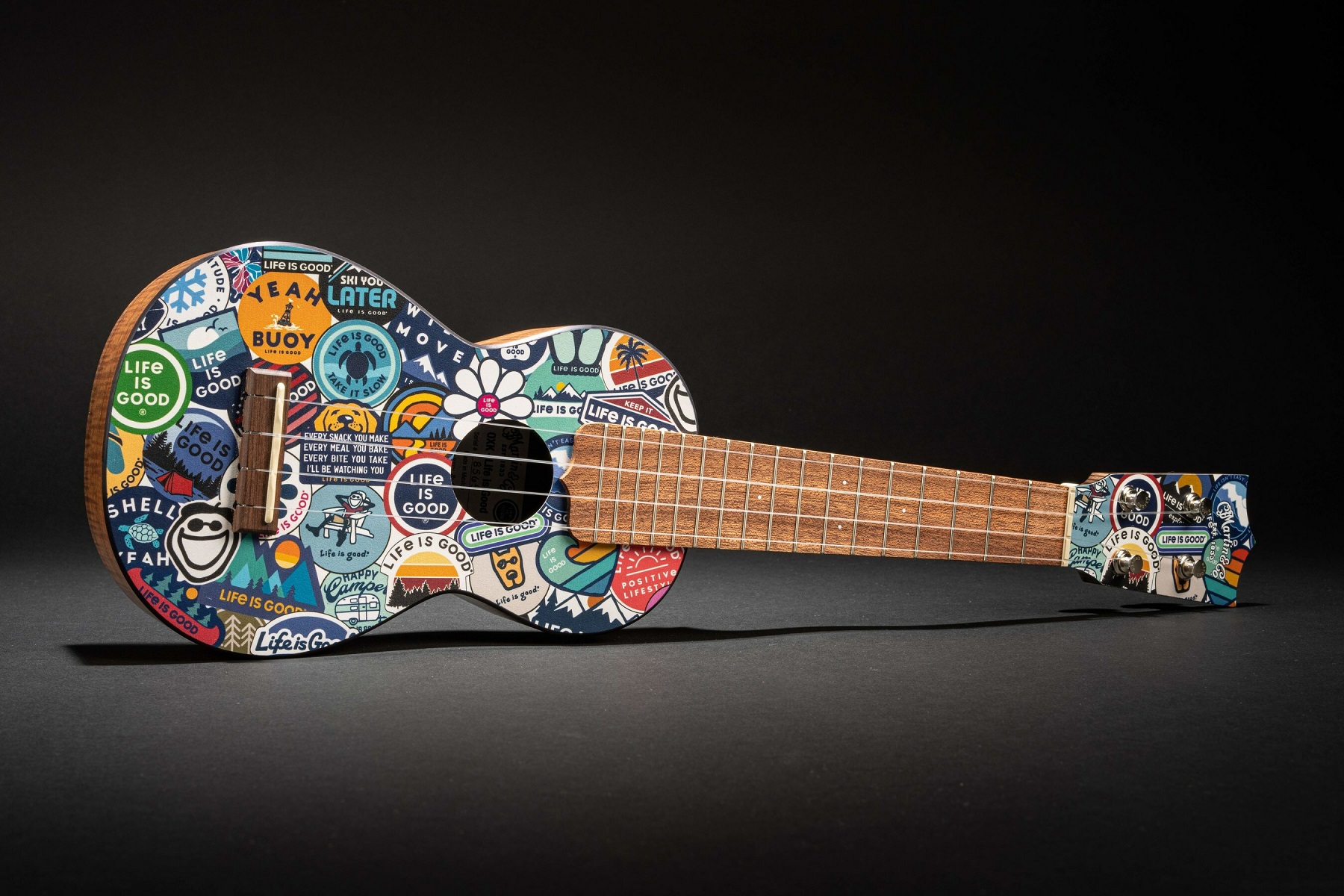Vertere Acoustics launches Super Groove II PTA high-end Tonearm
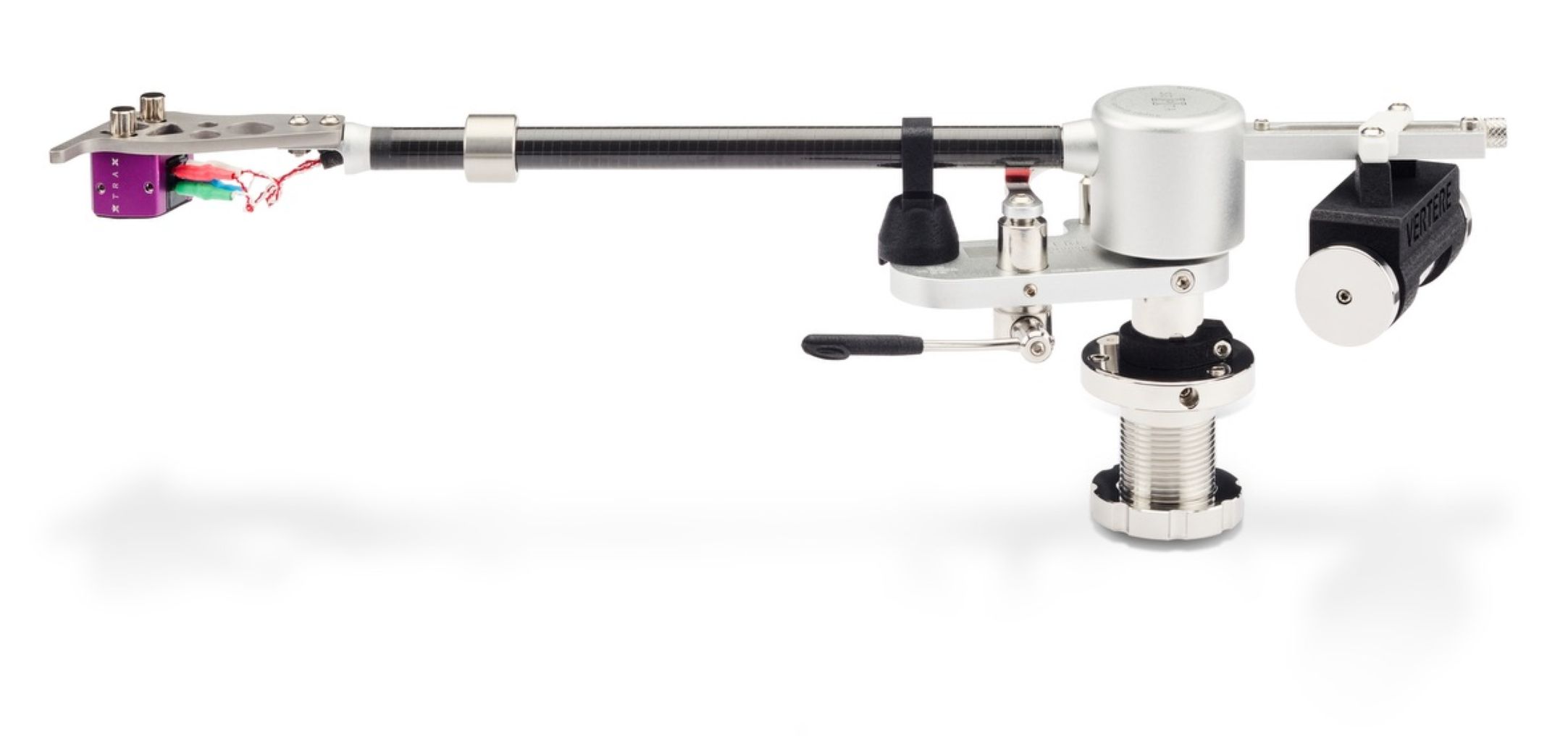
. At a press conference,Touraj Moghaddam Vertere’s founder and chief designer launched and demonstrated his latest tonearm design, the SG-II PTA.
Vertere’s new high-end tonearm is designated the SG-II PTA, as it looks—at a brief glance—similar to the SG-1 PTA tonearms. However, looks can be deceiving, as the SG-II only shares three parts with its junior siblings: the fine tracking force weight, the lift lower mechanism, and the silicon nitride triple bearing assembly. The SG-II-PTA HB will sell for £13500, €16998, and $16995. It will be available from July.
Vertere customers worldwide have called for a tonearm they feel more matches the SG-1 and RG-1 record players. Although the words from the launch of the SG-1 PTA tonearms three years ago are still almost correct: “The Vertere Super Groove Precision Tonearms utilise a combination of quality materials, including roll-wrapped carbon-fibre, stainless steel, aluminium alloys, brass and silicon nitride. Its unique bearing design and versatile anti-skate adjustment make it an ideal partner for the highest quality cartridges and turntables”. Never one to back down from pressure, Touraj set himself a target of a new tonearm with the performance approaching that of the Reference tonearm but something more affordable. T added Tungsten Carbide and removed brass from the bill of materials but, in the process, changed almost everything. The SG-II must be heard. It is just massively better than its older siblings.
| The overall objective was to optimise the effective mass as seen at the stylus tip. The more optimised, the more the stylus tip moves and the less the tonearm moves, which improves efficiency, dynamics, and information retrieval.Key ImprovementsNew super-polished, aero-space-precision Silicon Carbide/Tungsten Carbide Tri-pivot bearing with ultra-low friction, stiction and noiseNew Titanium Headshell with improved dynamic mass distributionHeavier decoupled dual-axis stainless steel counterweight with adjustable outriders for easy azimuth adjustmentAustenitic stainless steel central pillar and bearing holderAustenitic stainless steel pillar holder and clampVTA adjustment collar for easy adjustment and repeatabilityNew Bearing Yoke with bearing more in line with stylus tipImproved and stiffer rolled carbon fibre tube to the headshell and bearing yoke jointsImproved dynamic centre of mass /centre of inertiaImproved armrest with arm lock for transitThe ‘Penguin’ transit spacer/lockExisting innovationsNon-resonant, high-rigidity roll-wrapped carbon fibre arm tube.Sliding effective mass /arm cartridge resonance/tracking weight fine-tuning adjusterBias-curve adjustable anti-skate mechanism.Vertere HB internal wiringMachined from solid PTFE Arm DIN connector with precision machined Vertere connectorsAll connections are custom-manufactured and triple gold-plated.The features in more detailSG-II TPA tonearm bearingThe unique Tri-Pivot bearing consists of three super-round silicon nitride balls held captive in a precision-machined Acetal ball-retaining ring supporting the aerospace-precision machined Tungsten Carbide pivot. The pivot point centred between the silicon nitride balls provides flawless support and articulation. The new Tungsten Carbide pivot is machined and polished similarly to the RG-1 record player’s main bearing to deliver exceptionally low friction, stiction and noise. | ||
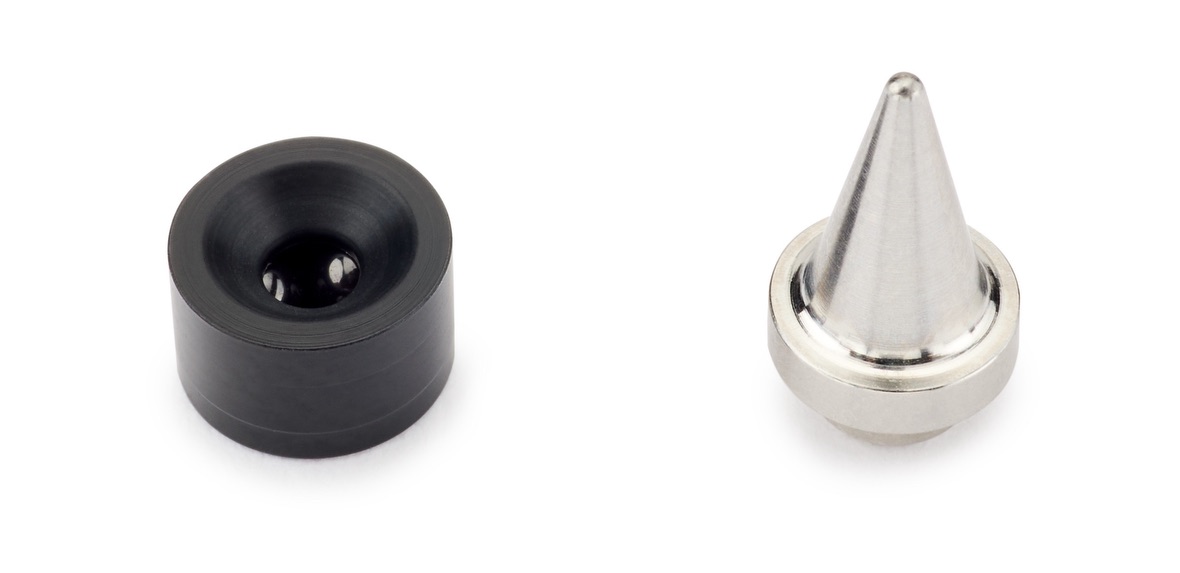
| Background to the TPA bearing designAt first sight, the SG-II PTA Tonearm may come across as a uni-pivot; it is anything but. A uni-pivot will skate about on its bearing point of contact while the tonearm moves side-to-side and up and down. There is no such thing as a point; one surface is supported by another and sliding relative to each other. Because of this, there is always some skating of the contact point on the support bearing surface. Although the skating or chatter may be in fractions of microns, so is the magnitude of some information stored in the vinyl groove.To eliminate this loss of information due to unwanted bearing chatter, Touraj designed the Tri-pivot bearing. Three silicon nitride precision balls and a super-precision machined tungsten carbide point provide the arm’s support and articulation. Although the tonearm may appear to behave as a uni-pivot, it is without any bearing chatter, preserving as much signal information as possible.The result is a lifelike dynamic response with unexpected clarity, musicality, and detail—genuinely significantly better than the SG-1. |
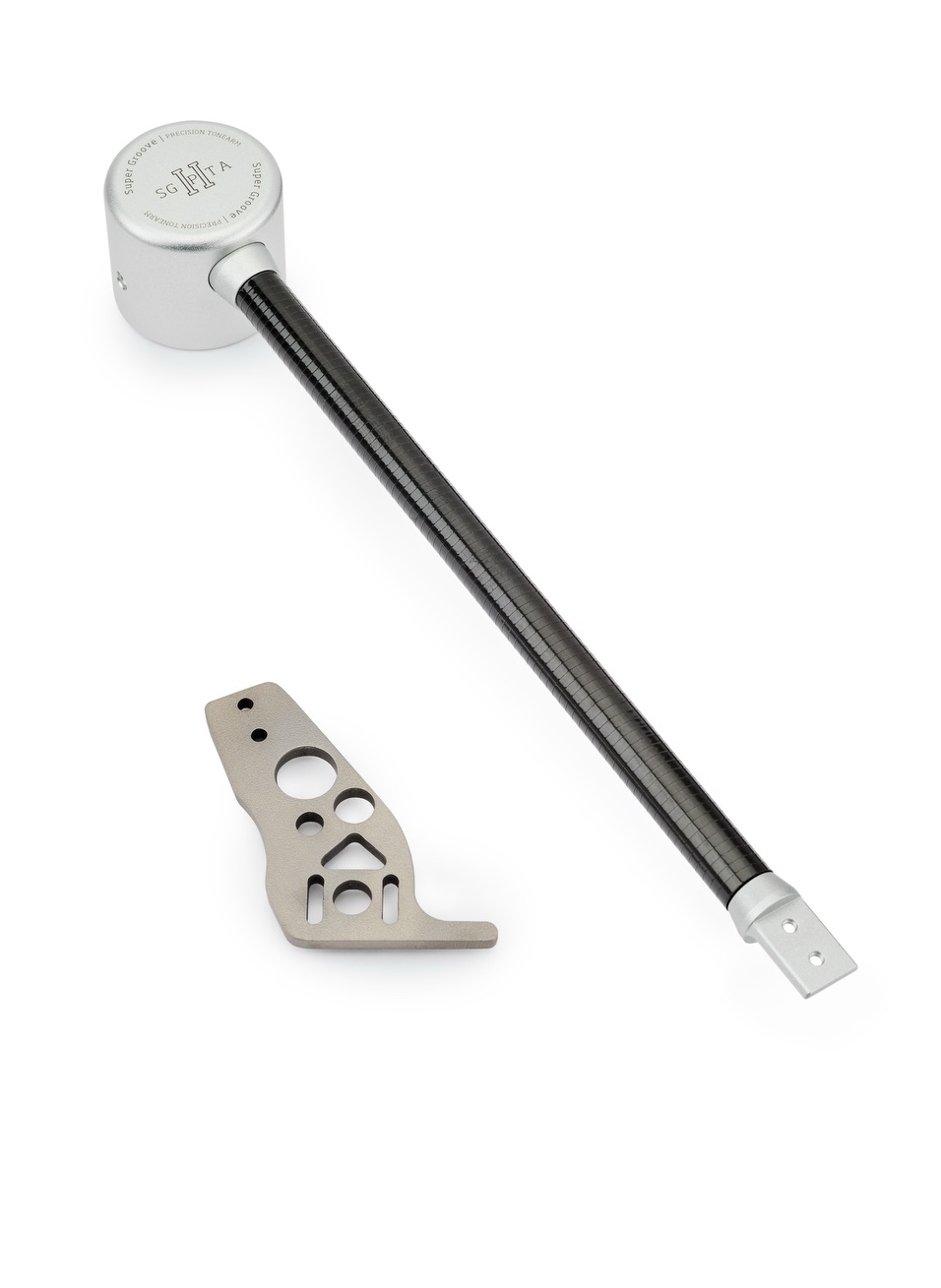
| Aluminium Bearing yoke and Austenitic Stainless (316) Steel pillarThe super-precision Tungsten Carbide bearing pivot is structurally bonded to the new precision-machined aluminium alloy yoke. The assembly provides the support required for the arm tube, the main counterweight and the anti-skate mechanism.The pivot point and the counterweight centre of gravity are vertically positioned in line with the stylus tip for improved dynamic centre of mass and centres of inertia. Arm/Cartridge resonance frequency & fine-tracking weight adjustment |
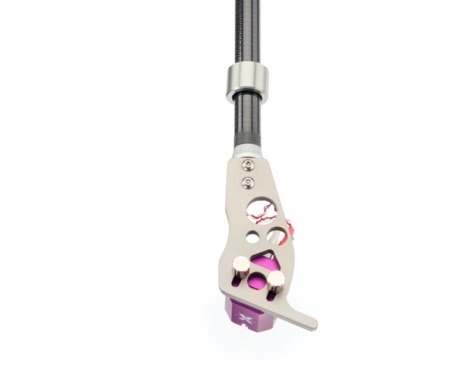
SG-II Tonearm Main CounterweightThe dual-axis counterweight assembly is precision adjustable for tracking force and azimuth. Its width adds to lateral stability – think Charles Blondin crossing Niagara Falls. |
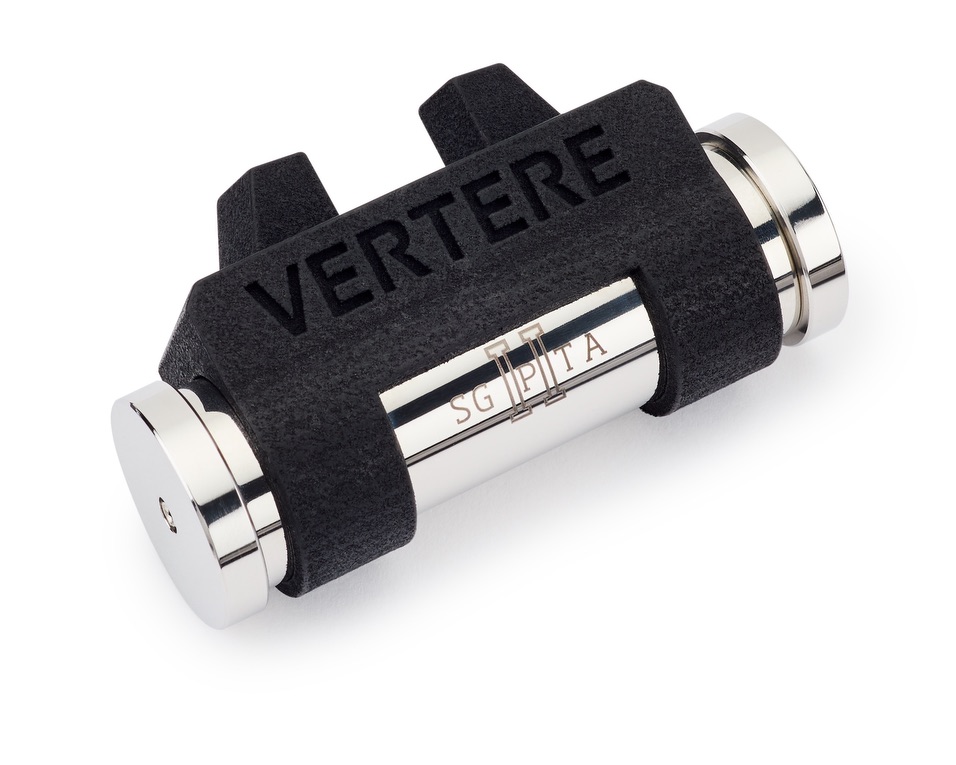
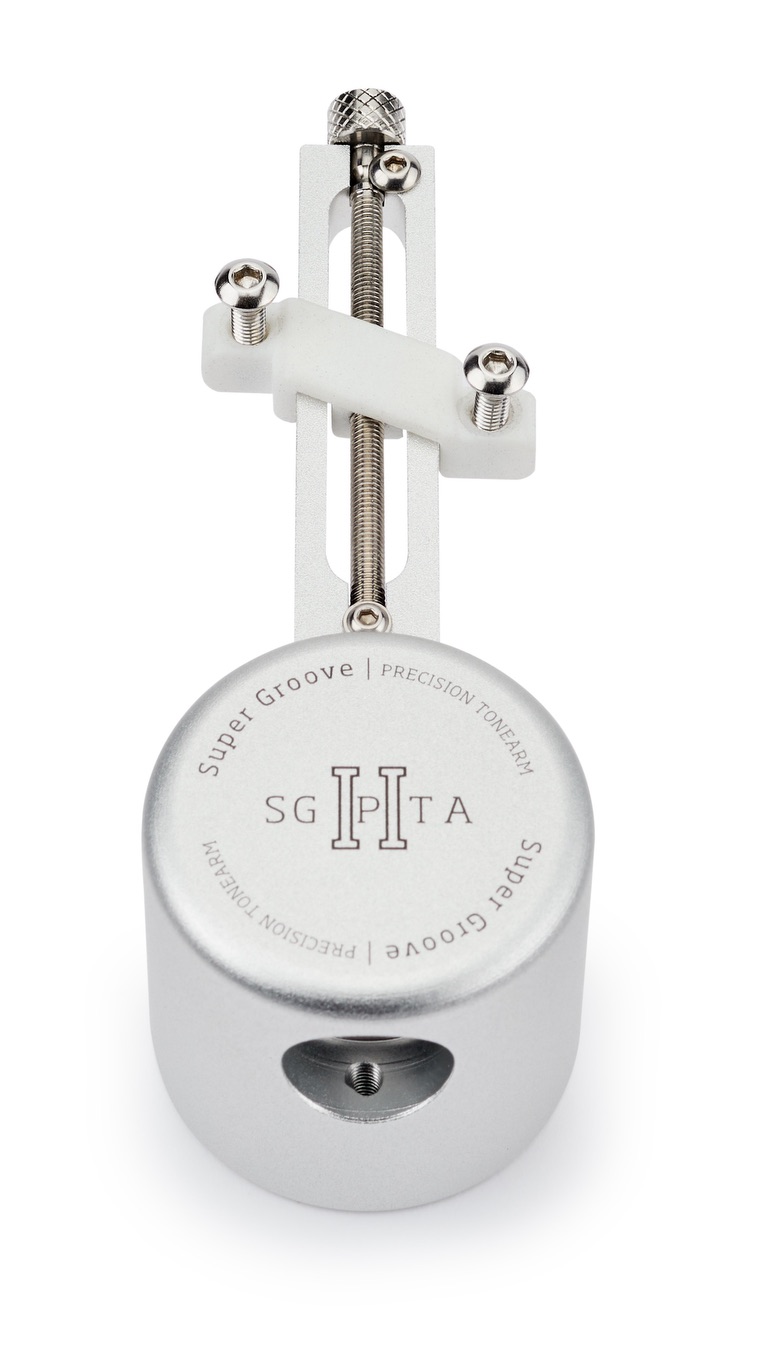
SG Tonearm Pillar Holder and Clamp |
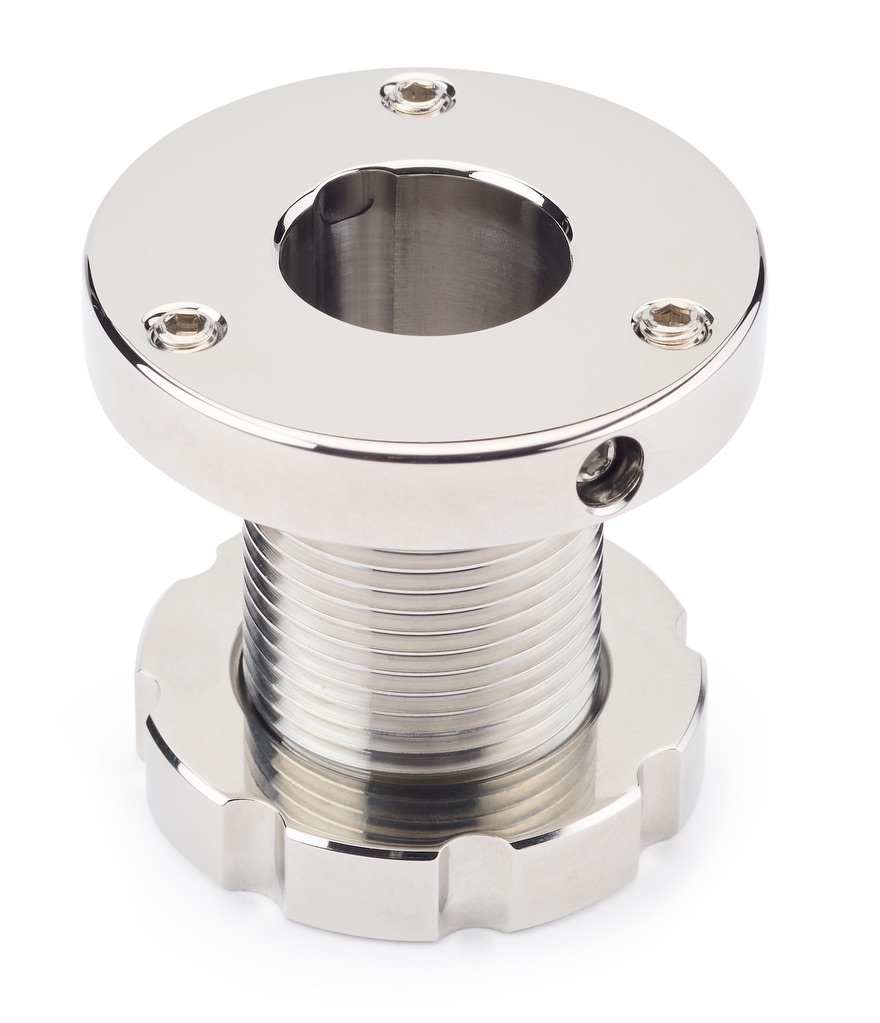
Internal Wiring & Contact ConnectorsThe cartridge tags and the 5-pin connector pins are designed, machined, and gold-plated to Vertere’s exact specifications for the SG-II PTA. The 5-pin connector main body is CNC machined from solid PTFE for its superior dielectric characteristics. Internal wiring utilises Pulse HB.Bias-curve adjustable anti-skate mechanismThere is much debate about how to set anti-skate optimally. The ideal setting is affected by tracking weight, record speed, stylus profile and record cut. But it’s the hi-fi business, so there are n+1 arguments about the correct philosophy. The SG-PTA allows the anti-skate to be set variably across the record – for example, greater at the outside or greater at the inner. The optimal results are established by listening at the beginning, middle and end of a selection of records and choosing the best performance across all three positions. |
| Technical Specifications Type Tri-pivot articulated Effective Length 240mm Overhang 17.5mm Offset Angle 22.9°Head-Shell Titanium Arm Tube Wrapped Carbon Fibre Bearing Yoke Structure Aluminium Body Bearing Type Captive Silicon Nitride Balls (x3) Tungsten Carbide point Counter Weight High Polished Stainless Steel Stainless Steel T/W Adj. Sleeve Internal Wiring Pulse Hand-built Connector Proprietary Cartridge Tags & 5-Pin Triple Thickness Gold Plated Contacts Tonearm Cable veRum Weight 495g |
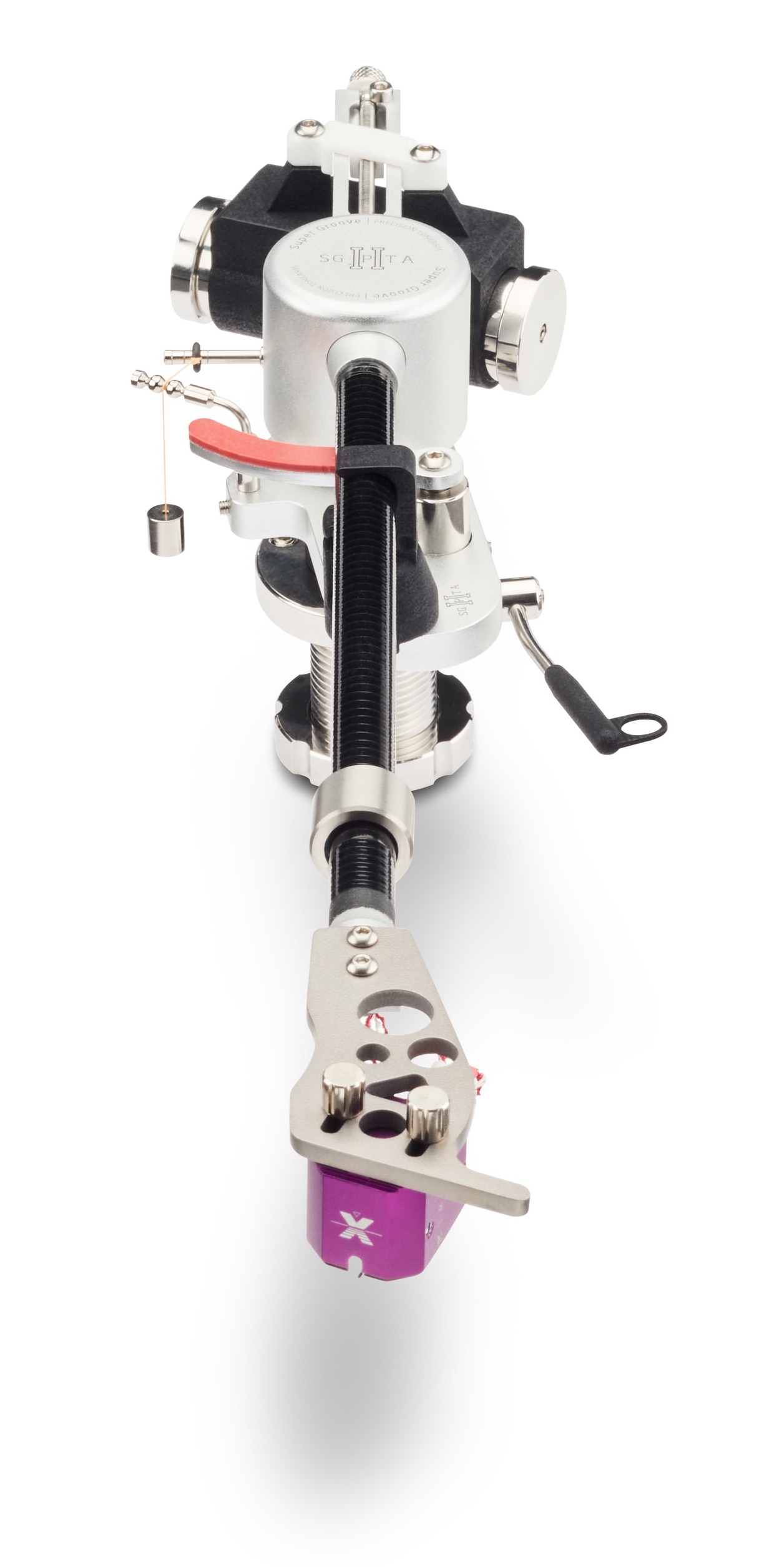
Touraj explains the source of some of his background knowledge
“Our collaboration with music industry engineers has given us invaluable insights into the art of cutting. This knowledge has enabled us to advance our record player design in many ways to extract the maximum from vinyl records.
For example, with his remixes of the Beatles albums, Giles Martin – son of the late Sir George – used a Vertere MG-1 record player, including SG-1 tonearm and PHONO-1 preamplifier throughout, to check and approve the acetates and the test pressings.
We’ve worked closely with the multi-award-winning mastering engineer Miles Showell since February 2017.Miles has been using his own extensively customised Neumann VMS 80 lathe, incorporating Vertere cables, to cut standard and half-speed masters for the likes of ABBA, Cream, The Police, and The Rolling Stones, as well as the 50th-anniversary release of The Beatles’ Sgt Pepper’s Lonely Hearts Club Band and The Beatles (otherwise known as ‘The White Album’).
Working closely with Mileshas led to the first releases on our record label, Vertere Records. Releases: a three-track EP, two albumsby Scottish band Caezar, and the first album by Dutch singer/songwriter Elles Springs, which was specially tape-transferred, and then half-speed mastered and cut by Miles for our label.
By involving ourselves at every stage of the record-making process, we can ensure our players bring you as close as possible to what the artists and engineers wanted you to hear.”
About Vertere
Reducing engineering to its fundamentals will get you closer to the original recording.
When aiming to reproduce the complexities of music, it’s all too easy to introduce even more significant complications in the engineering of audio equipment, putting in place one element to solve the problems until the whole design escalates into something fiendishly intricate – and unnecessarily expensive.
That’s not the Vertere way: coming at the whole problem with decades of audio and mechanical engineering experience, plus close collaboration with the recording and mastering industry, we step back, take a long, hard look at the fundamentals, and look for simple, elegant solutions.
That may sound like a simple ‘less is more’ philosophy, but we prefer to look at it this way: the best audio equipment shouldn’t add anything to or remove anything from the original recording. Instead, it should affect it as little as possible, bringing the listener closer to what the artist, producer and mastering engineer wanted you to hear.

